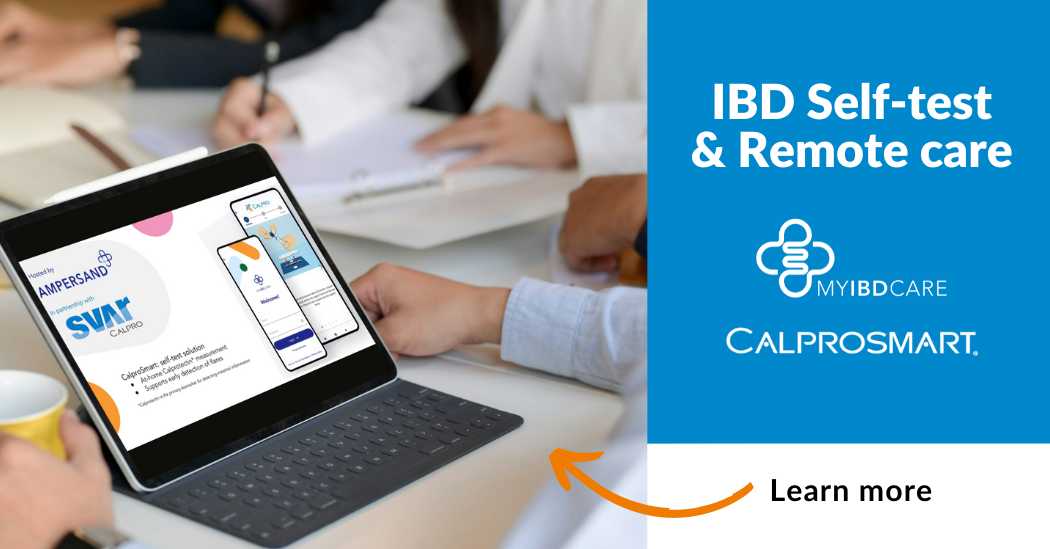Living with Inflammatory Bowel Disease (IBD) presents daily challenges, navigating through symptoms that can vary in intensity and duration. Amidst this complexity, an unexpected ally emerges: the humble act of tracking bowel movements. This simple yet powerful tool offers invaluable insights into the condition's status, aids in identifying treatment effectiveness, and guides toward more personalized management strategies.


Living with Inflammatory Bowel Disease (IBD) presents daily challenges, navigating through symptoms that can vary in intensity and duration. Amidst this complexity, an unexpected ally emerges: the humble act of tracking bowel movements. This simple yet powerful tool offers invaluable insights into the condition's status, aids in identifying treatment effectiveness, and guides toward more personalized management strategies.
Most common IBD conditions are Crohn's Disease and Ulcerative Colitis, which are characterized by chronic inflammation of the digestive tract. Flare-ups can occur suddenly, leading to increased symptoms such as diarrhea, abdominal pain, fatigue, and weight loss. Tracking bowel movements during these episodes can help understand the frequency, consistency, and urgency, providing vital information about the severity of the flare.
Effective management of IBD often involves medications and lifestyle modifications, but not all treatments work for everyone. By diligently documenting bowel movements, it is possible to spot patterns that reveal whether a current treatment plan is working as expected. If a persistent increase in symptoms is noticed or worsening stool consistency despite adhering to treatment, it could be a sign that it's time to make potential adjustments to the treatment plan.
Tracking bowel movements goes beyond just keeping a record; it empowers patients to actively participate in their healthcare. IBD is a highly individualized condition, and what works for one person may not work for another. Regularly tracking bowel movements can be a game-changer in helping a healthcare team tailor a personalized approach to managing IBD.
.
In conclusion, while tracking bowel movements may seem like a simple task, it can be an invaluable tool for understanding IBD flares, identifying issues with treatment plans, and guiding toward more effective strategies for managing this complex condition.
By integrating the CalproSmart self-test (a rapid test for distant monitoring of patients with established chronic IBD), with Ampersand's "My IBD Care" app, patients gain the ability to receive timely support as needed. This synergy facilitates clinicians' remote care delivery and enables them to make well-informed decisions promptly.
"My IBD Care" serves as a practical and user-friendly tool tailored for UK IBD patients, offering valuable guidance on condition management. Moreover, diligent symptom tracking empowers patients to refine their treatment plans.
This proactive approach allows individuals to address challenges as they arise rather than waiting for scheduled appointments. Consequently, it leads to enhanced IBD management and a better overall quality of life.
Don't miss out on our recent webinar collaboration with Ampersand Health. Led by Consultant Gastroenterologist and Co-Founder of Ampersand Health, Dr. Gareth.
Though the live event has passed, you can still access all the invaluable insights by viewing the recorded session.
Key Learning Objectives
Ankersen DV et al., E-Health and remote management of patients with inflammatory bowel disease: lessons from Denmark in a time of need. Intern Med J. 2021.
Burisch J et al., Telemonitoring and self-care in patients with IBD. In: RK Cross and AR Watson, eds. Telemanagement of Inflammatory Bowel Disease. Springer US; 2015.
De Jong MJ, et al., Telemedicine for management of inflammatory bowel disease (myIBDcoach): a pragmatic, multicentre, randomised controlled trial. Lancet. 2017.
De Jong MJ, et al., Costeffectiveness of telemedicine-directed specialized vs standard care for patients with inflammatory bowel diseases in a randomized trial. Clin Gastroenterol Hepatol. 2020.
Pang L, et al., Role of Telemedicinein Inflammatory Bowel Disease: Systematic Review and Meta-analysis of Randomized Controlled Trials. J Med Internet Res. 2022.